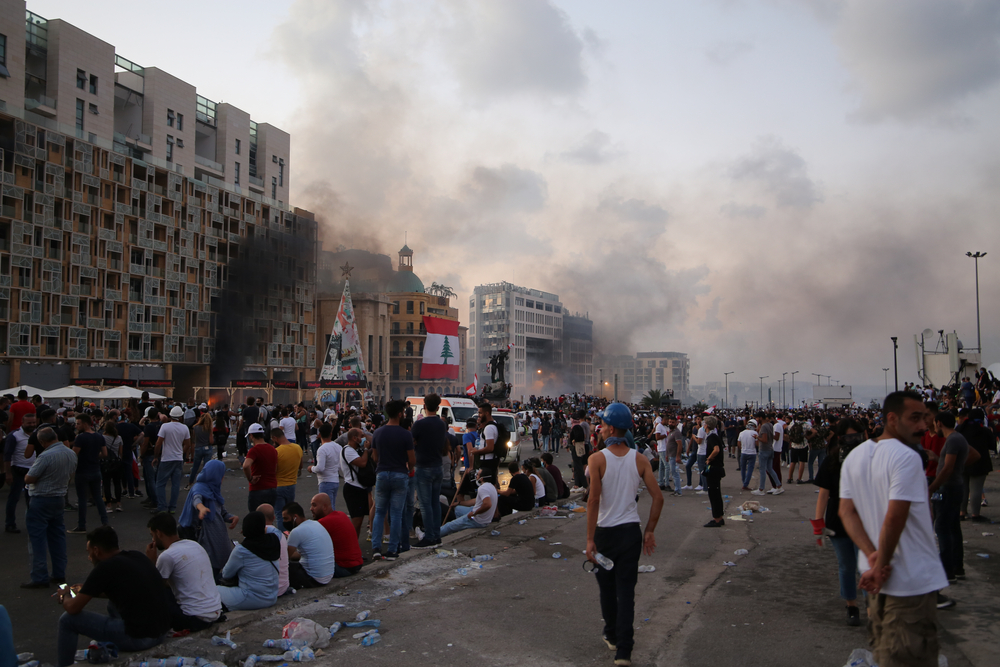Beirut explosion: Lebanon faces humanitarian emergency
- August 21, 2020
- 8:57 am

Matt Head
Share this content
The explosion in Beirut is further straining the health system and food supplies, as well as risking the country’s COVID-19 response.
Lebanon faces a humanitarian emergency following the explosion on Aug 4, 2020, of more than 2000 tonnes of ammonium nitrate stored at Beirut’s port that has added severe strain to a health system already buckling under an economic crisis, civil unrest, the COVID-19 pandemic, and the hosting of some 1.5 million refugees in a country of about 6 million people.
The blast killed at least 200 people, injured more than 6,000, and left 300 000 homeless. On Aug 10, soon after rejecting an international inquiry into the explosion’s cause, the government resigned amid rising anger and protests demanding the removal of the political elite and an end to corruption, bad governance, and mismanagement.
International donors pledged 253 million euros in aid at a summit arranged by France on Aug 9, but they also called on the Lebanese Government to listen to demands for reform made by protesters.
WHO said three hospitals were non-functional and another two suffered substantial damage. In addition, 17 containers with essential medical supplies and a recently delivered shipment of personal protective equipment to tackle COVID-19 were destroyed at the port.
“WHO is deeply concerned about the hospital and health workforce capacity, supplies of medicine, and chemical fumes which might have a harmful impact on the health of people with underlying conditions”, the agency said in a donor alert issued on Aug 6.
Officials estimate that the explosion caused up to US$15 billion of damage. Damage to the port was expected to exacerbate the economic and food security situation because the port was a major entry point for aid, and Lebanon imports 80–85% of its food. According to the UN World Food Programme, even before the explosion, 50% of Lebanese people surveyed said that they were worried about not having enough to eat.
“It’s a catastrophe, it’s incomprehensible. Everyone is traumatised and there is a big mental health impact”, Iman Nuwayhid, dean of the faculty of health sciences at the American University of Beirut (Beirut, Lebanon).
Lebanon reportedly has enough doctors and nurses but is facing shortages of medical supplies, even before the blast, because of an economic crisis over the past few months, according to Karam Karam, a clinical professor of medicine at the American University of Beirut. A devaluation of about 80% in the Lebanese pound and bank controls on foreign currency meant that imports of medicines and equipment had become much more costly. “People are dying because they don’t have shelter or money to pay for health care”, he said. “Everyone blames the criminal and corrupt junta that rules us.”
Before the explosion, 75% of Lebanese people were in need of aid, 33% had lost their jobs, and 1 million people were living below the poverty line, and these numbers were considered likely to rise.
COVID-19 is posing a further burden – more than 6,000 cases and 78 deaths had been recorded by the health ministry as of Aug 8. There could be a spike in cases because many health and rescue workers responding to the explosion, as well as protesters, have not observed social distancing or worn masks.
While the resources of many hospitals were being directed towards the casualties of the explosion, the capacity to deal with COVID-19 should not be lost, urged Firass Abiad, the general manager of Beirut’s Rafik Hariri University Hospital (the main Lebanese Government hospital charged with managing the epidemic), in a tweet on Aug 6.
There was also concern about the impact on health caused by the chemicals released by the explosion. “The main long-term hazard is from combustion products such as polycyclic aromatic hydrocarbons, which are carcinogenic”, Roy Harrison, Professor of Environmental Health at the University of Birmingham. More immediately, the main health hazard was from the formation of particulate matter that causes reductions in lung function and symptom exacerbation in people with asthma, he said.



